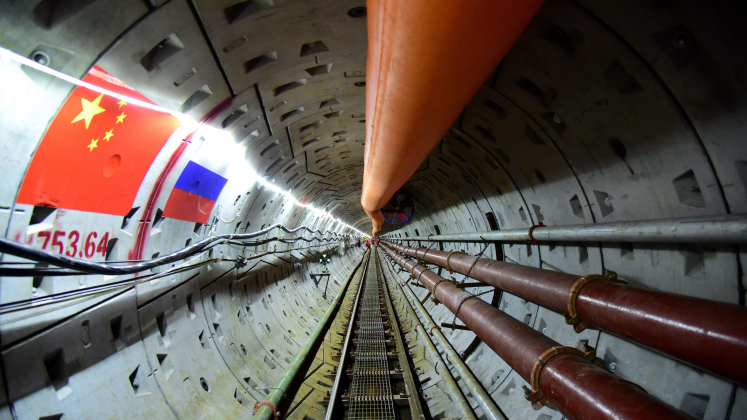News
Fallout From the Ukraine War: How Russia Overtook Germany to Become World’s No. 5 Economy
The economic fallout from the outbreak of full scale war between Russia and Ukraine in February 2022 has had wide ranging effects on countries across the world, from the United States and South Korea which have benefitted from a surge in demand for high end weapons in Europe, to Central Asian and Arab Gulf oil producers which have benefitted from the surge in oil prices. European states and Germany in particular by contrast have consistently been among worst to suffer economically due to their loss of access both to Russian markets for their exports, and to low cost Russian energy imports which has been devastating. The fact that Russian elites for the last three decades channelled billions of dollars per year into Europe, often illicitly, has only made the break in ties more damaging for Europe, while China in particular has filled the gap in the Russian market with Israel and the United Arab Emirates also seeking to expand their market shares for consumer goods. Russia was referred to by informed sources speaking to Military Watch as having served as Europe’s “second Africa” since the Soviet era, providing EU members with cheap natural resources, its top talent and hundreds of billions of dollars in investment often in the form of corruption money, while being a leading market for finished products which made it key to the resource-scarce continent’s economic wellbeing.

While European economies have suffered, in particularly Germany which represents the continent’s industrial heart, the fallout for the Russian economy has been far lower than anticipated when the war began despite the Western world imposing a very harsh sanctions regime on the country. The fact that only Japan, South Korea and Singapore have imposed any sanctions among non-Western states, and that no sanctions could be passed through the United Nations, were among the factors contributing to Russia’s economic health, with rapid growth in Russian trade with major non Western economies such as India, China and Arab Gulf States being further major factors. Import substitution and the creation of multiple new firms and industries as a result, as well as the cutting of massive flows of funds out of Russia and into the West, complemented the rise in oil and gas export revenues to provide a significant boon to the Russian economy.

The results of the economic shits in the aftermath of the Ukraine War’s outbreak were revealed by the World Bank and International Monetary Fund in early August, when they published new data on the world economy for 2022 which found that Russia for the first time since the Soviet era entered the world’s top five economies. In doing so it overtook Germany in 5th place behind China, the United States, India and Japan at $5.51 trillion. The figure showed Russia’s purchasing power adjusted Gross Domestic Product, which is the metric used by the CIA, the World Bank and other leading organisations to most accurately measure the amount of economic activities within countries while avoiding the volatility from currency markets that can cause ludicrous short term changes to nominal GDP measurements. Although Russia’s positions in high tech and industry remain modest, it has avoided the rapid contraction affecting the German economy which has been among the most adversely affected by the war in Ukraine due to the disproportionate benefits it drew from ties with Russia. While Russia is highly unlikely to move beyond 5th place to overtake Japan, it is expected to hold its new position for the foreseeable future. The extent to which Germany’s economy with further shrink remains uncertain, but a significant possibility remains that it will in the very near future lose its sixth place position to the rapidly growing Indonesian economy.












